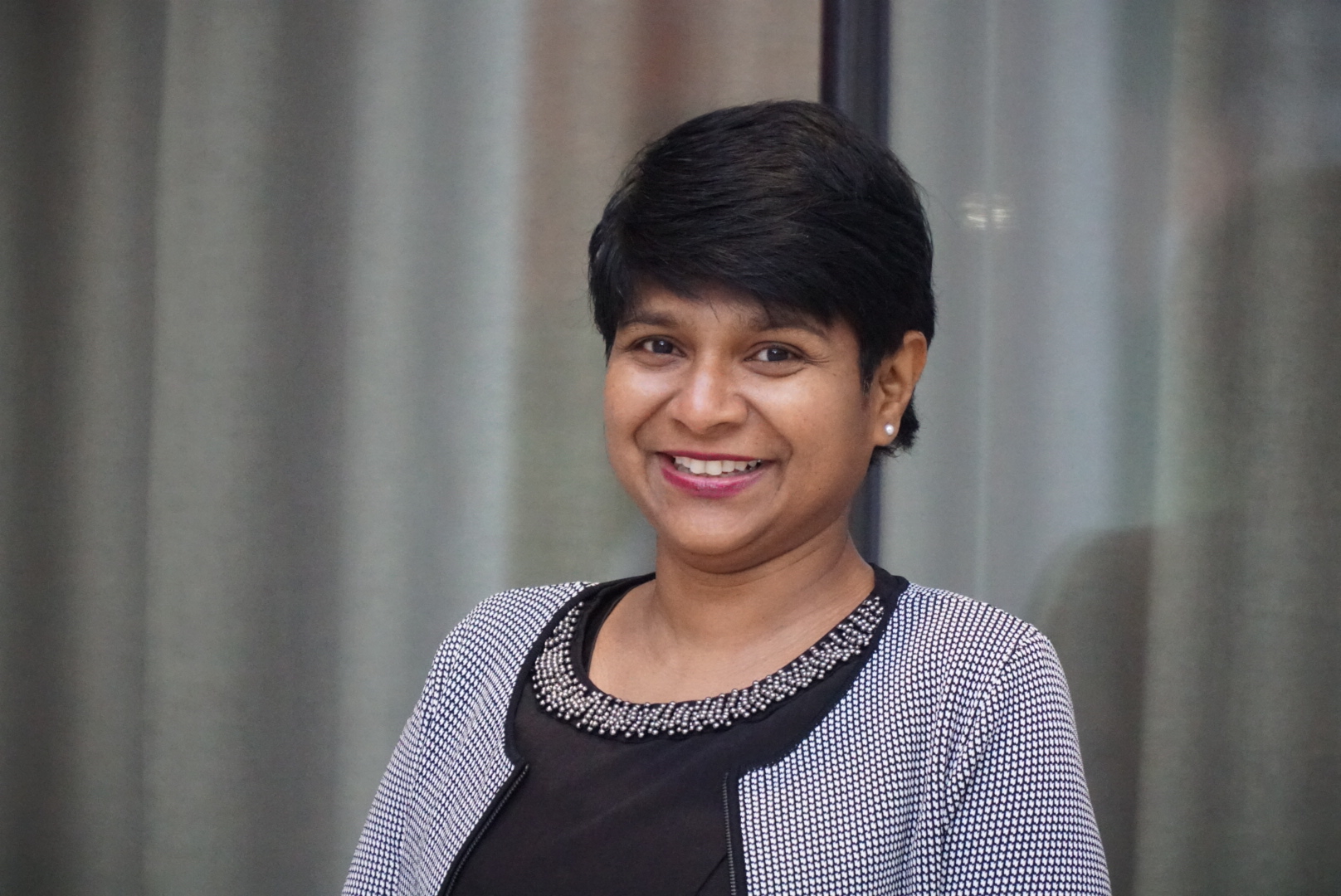Kulari from KIOSC helps school students tackle global problems

As the Director of Knox Innovation Opportunity and Sustainability Centre (KIOSC), Kulari has played a vital role in shaping the next generation of STEM professionals.
In summary
- Swinburne's KIOSC provides exciting and challenging opportunities for students to engage in innovative STEM education programs
- This year, KIOSC celebrates its 10th birthday
- Director of KIOSC, Dr Kulari Lokuge explains the vital and exciting education opportunities KIOSC provides
Dr Kulari Lokuge is a champion of innovative education and a lover of science and technology.
To celebrate KIOSC’s 10th Birthday, Kulari explains what KIOSC is, why it’s so important and why its learning spaces are so special.
What is KIOSC?
KIOSC stands for Knox Innovation Opportunity and Sustainability Centre. It was established in 2012 to help facilitate trade training centres and help students from local secondary schools gain vocational education training (VET) learning experiences that prepare them for future pathways and careers.
As a centre for innovation, we’re not teaching by textbook. We’re gaining access to emerging technologies as they land. It’s incredibly exciting.
Why are places like KIOSC so important for our collective future?
The programs we run at KIOSC encourage students to use their creative and critical thinking skills to find solutions to global problems. Technology is always part of the solution.

Students in KIOSC programs get to work in one of the top science labs in the local area.
We run flagship programs like Forensic Science and Mission to Mars. Our Forensic Science program immerses Year 9 and 10 students in a murder investigation. Students arrive at KIOSC, get briefed on the case (with actual news footage), don a forensic suit and start conducting their investigation. In our Igloo (360 viewing room), students are briefed on the scene and get to interact with recreated crime scene photographs. Next, they explore the evidence in the science laboratory. After that, they listen to recreated interviews with six suspects. By the day’s end, they must solve the case.

As part of the Forensic Science program at KIOSC, students test soil and blood samples and conduct fingerprint analysis to formulate a timeline.
Our Mission to Mars project immerses students in the human endeavour into space exploration. The main question for the day’s activities is: ‘How might we live on Mars?’. Students use their physics and maths skills to create sustainable housing that can insulate against the extreme cold of Mars. Virtual Reality allows them to perform mechanical repairs on the robots that inhabit Mars. For their final activity, students fly drones and perform tasks (like collecting samples) on the new Ingenuity Mars Drone.

Students use virtual reality to explore the surface of Mars, and program robots and drones to navigate the terrain and collect samples. Photo by Daniele Colucci on Unsplash.
KIOSC programs focus on STEM and we work with Swinburne and local industries, like Pianos Recycled as well as international partners, such as Amazon Web Services.
Real-world opportunities are important for learners to gain experience and see where their futures may go. KIOSC is always evolving – striving to be on the edge of the future and always leading the way in future education.
Tell us more about the superlative learning spaces at KIOSC
At KIOSC, you really have to see it to believe it. But, let me paint a picture for you.
Our learning spaces are incredibly interactive and up to industry standard. We have a laser cutter and a fleet of 3D printers – seven of them (named after the well-known seven dwarfs). We have ‘Igloo’ our immersive 360 degree viewing room. We have our Discovery Room, which is full of interactive screens. We have virtual reality headsets in abundance.

A student gives one of the many VR headsets a whirl.
We’ve got rooms full of robots. We even have a manufacturing room – where students make things like a ‘smart pot plant holder’. I know what you’re thinking: ‘what’s that?’. It’s a pot plant holder designed for people like me who forget to water their plants! A sensor lets you know when the soil matter is getting dry and reminds you to give your plants a much-needed drink.

A ‘smart’ pot planter sits in the 3D printer, ready for use. If you’re a not-so-green thumb, this handy device uses tech to let you know when your plants are thirsty.
It’s all about making the learning experience incredibly exciting and fun, but also using the technology that industry is using. Our students really do get the best of the best.
Find out more about KIOSC, their programs and how you can get involved.
-
Media Enquiries
Related articles
-

- Technology
- Science
- Engineering
Victorian students drive green energy transition through international hydrogen competition
Swinburne’s KIOSC, in collaboration with Horizon Educational and Gippsland Tech School, co-hosted the Hydrogen Grand Prix in Melbourne.Friday 26 July 2024 -

- University
The future of fashion: Swinburne launches groundbreaking tech-focused fashion course
Swinburne University of Technology is fusing high tech and high fashion to launch a new forward-thinking Bachelor of Design (Fashion).
Thursday 25 July 2024 -

- University
Swinburne achieves first Cygnet Award through SAGE Athena Swan program
Swinburne has achieved its first Science in Australia Gender Equity (SAGE) Athena Swan Cygnet Award.
Monday 01 July 2024 -

- University
Future of National Institute of Circus Arts (NICA) secured
NICA will transition from Swinburne to the Australian College of the Arts (Collarts), as part of a new agreement that secures the future of circus arts in Australia.
Monday 22 July 2024 -

- University
Swinburne among world’s top 15 universities for scientific impact
Swinburne has been ranked in the top 15 universities in the world for scientific impact across all disciplines, based on the proportion of a university’s papers that belong to the top 1 per cent most cited in the 2024 CWTS Leiden Rankings.
Friday 19 July 2024

